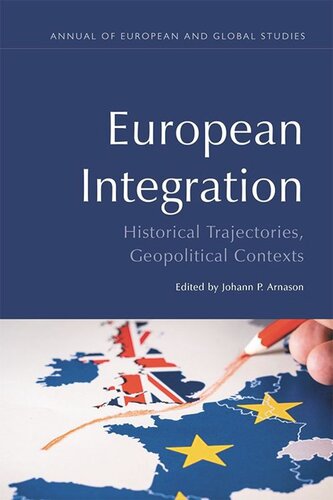

Most ebook files are in PDF format, so you can easily read them using various software such as Foxit Reader or directly on the Google Chrome browser.
Some ebook files are released by publishers in other formats such as .awz, .mobi, .epub, .fb2, etc. You may need to install specific software to read these formats on mobile/PC, such as Calibre.
Please read the tutorial at this link: https://ebookbell.com/faq
We offer FREE conversion to the popular formats you request; however, this may take some time. Therefore, right after payment, please email us, and we will try to provide the service as quickly as possible.
For some exceptional file formats or broken links (if any), please refrain from opening any disputes. Instead, email us first, and we will try to assist within a maximum of 6 hours.
EbookBell Team

4.3
48 reviewsTo understand the current difficulties and future prospects of European integration, multiple perspectives are required. The essays in this collection explore historical and geopolitical aspects of European integration and their relevance to interpretations of the current climate. They also examine the different regional dynamics of integration and the attitudes that result from those experiences, including in the European peripheries that are so often overshadowed by the dominant centres. In drawing all of these perspectives together, the collection allows the reader to assess the EU’s current crisis in context.
Johann P. Arnason, La Trobe University, Australia, and Charles University, Czech Republic.
Paul Blokker, University of Bologna, Italy, and Charles University, Czech Republic.
Natalie J. Doyle, Monash University, Australia.
Chris Hann, Max Planck Institute for Social Anthropology in Halle, Germany
Toby E. Huff, Harvard University and University of Arizona, USA.
Ireneusz Pawel Karolewski, University of Wroclaw, Poland.
Helmut Kuzmics, University of Graz, Austria (retired).
Dennis Smith, Loughborough University, UK.
Bo Stråth, University of Helsinki, Finland.